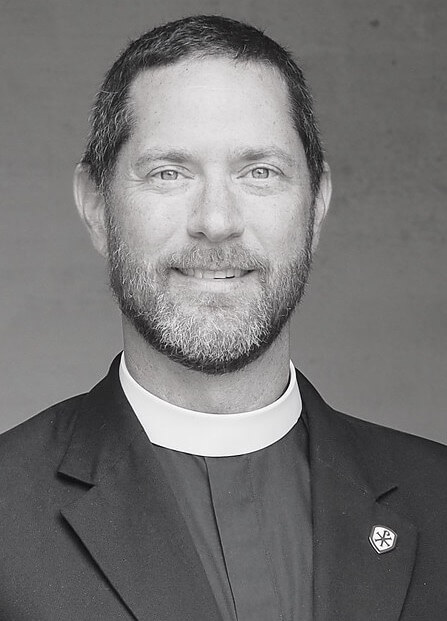by the Very Rev. Cn. Andrew Rowell
In some ways, it’s like a whole new province. While that may seem like a stretch to write, the election of our third archbishop, The Rt. (soon to be Most) Rev. Steve Wood, coupled with the ratification of substantive amendments to our canons (the ecclesiastical laws by which the ACNA operates) work together to usher in a new and unique season for the ACNA. While the Archbishop-elect will carry forward the godly leadership of our first two Archbishops, our newly ratified canons will, in many ways, reshape the way the province operates.
First, a bit of background. As you may know, necessary amendments to the canons of the ACNA are drafted each year by the ACNA Governance Task Force (GTF). Those proposed changes are then distributed to the province for consideration and comment. After incorporating received feedback as appropriate, the GTF brings those amendments to the Provincial Council, the principle governing body of the ACNA, which meets each year. The council votes whether to accept or reject the changes proposed by the GTF. Such changes do not become “law,” however, until a gathering of Provincial Assembly (a larger, even more representative body of the ACNA, which generally only meets every five years). The Assembly must ratify changes made to the canons by the yearly Council meetings, and then those canons become law 90 days after that.
As Vice-Chair of the GTF and a Trustee for the American Anglican Council, I’ve been honored to be part of the work we did to improve our canons over the last five years. I’m particularly thankful for the now-ratified canon that places a canonical duty upon our diocesan bishops to ensure that protection plans are in place to prevent abuse to both children and adults within our churches and ministries. Sample protection plans are available through the Executive Committee of the ACNA to aid bishops in developing protection plans that fit their diocesan contexts. Perhaps even more “province-changing” are the now-ratified canons requiring diocesan bishops to develop clear processes and procedures to report misconduct by priests, deacons, and even laity. These new canons seek to improve consistency and fairness to both accusers and the accused across the province, providing easy on-ramps and off-ramps for accusations of misconduct and increasing the transparency with which such allegations are handled.
Additional changes to our disciplinary canons were ratified as well and, by God’s grace, will act to increase the tools available to our province to protect the flock of Christ from abuse and misconduct. Importantly, these changes include granting the archbishop (with the consent of a panel of senior bishops) power to give a godly admonition or inhibit a wayward bishop. They also grant the dean of the province the same power towards any wayward archbishop. God forbid such powers will need to be exercised, but discipline for every level of the Church leads to greater discipleship, as we all seek to glorify God in his Church.
Please pray for Archbishop-elect Steve Wood as he takes the provincial crozier tomorrow and carries on the good legacy of leadership begun by Archbishop Duncan and Archbishop Beach. Pray for the Governance Task Force as we continue to work on further revisions to the disciplinary canons of the ACNA. And pray for the ACNA in general, that we might continue to proclaim the Good News of Christ with boldness and vigor. What an honor it is to see God’s Spirit on the move in this branch of his body, as we seek to express the English Reformation in a way that is orthodox, evangelical, catholic, and, with the help of good canons, disciplined in all our doings.

The Very Rev. Cn. Andrew Rowell is a Trustee of the American Anglican Council. He is also Rector of Christchurch in Montgomery, Alabama; Canon for Governance and Dean of the Western Deanery of the Gulf Atlantic Diocese; a Trustee of the Anglican Relief and Development Fund (ARDF); and Vice-chair of the ACNA’s Governance Task Force. In his prior professional life, Andrew served as a homeless shelter manager, a speechwriter for the U.S. Secretary of Health and Human Services, and a tax attorney at Hogan Lovells LLP in Washington, D.C. His wife, Mimi, is a nurse, and they have two sons, Eben (9) and Zeke (6). He is, most of all, a follower of Jesus Christ.

